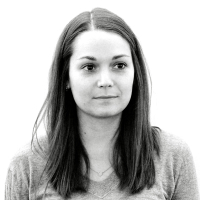Reading Pat Buchanan’s ode to Vladimir Putin this week, it’s hard to believe the man once served as a senior adviser to three American presidents and was considered relevant enough to grace the cover of Time magazine. Then again, the conservative pundit’s devolution from somewhat rational Republican mouthpiece to racially intolerant radical has been well-documented.
For those not yet up to speed, on Tuesday, the same day the Obama administration announced that none of its senior officials would join the U.S. delegation to the Winter Olympics in Sochi—a pointed stand against Russia’s anti-LGBT laws—Buchanan published a column on the conservative website Townhall.com praising the Russian president for those very policies.
“Is Vladimir Putin a paleoconservative?” Buchanan asked, referring to the conservative philosophy that promotes tradition, limited government, and religious and Western identity. “In the culture war for mankind’s future, is he one of us?”
In a recent state of the nation address, Putin rejected “the mandatory acknowledgement of the equality of good and evil”—i.e., the increased acceptance of such amoral things as gay rights and access to abortion in the United States, among other countries. Buchanan applauded him. He also applauded India, whose Supreme Court recently upheld a Victorian British law criminalizing homosexuality. Not to mention the “four dozen nations that are predominantly Muslim, which make up a fourth of the U.N. General Assembly and a fifth of mankind, [where] same-sex marriage is not even on the table.” And don’t forget Pope Francis, who “has reaffirmed Catholic doctrine on the [gay marriage] for over a billion Catholics.” Never mind that Buchanan previously denounced the pope for saying he wouldn’t judge gay people and suggested Oslo bomber Anders Breivik “may have been right” about Muslim immigrants posing a threat to Western society. As long as they oppose the gays, they’re OK with Pat.
So what happened to Pat Buchanan? How did this Columbia journalism school graduate go from serving in presidential cabinets and hosting CNN’s Crossfire to here? The truth is it’s entirely possible that Buchanan has held these beliefs since before they became controversial. Increased tolerance and expansions in civil rights over the years have turned once mainstream attitudes into antiquated vitriol.
For Buchanan, it’s difficult to pinpoint when, exactly, the transition to fringe-dweller took place. But the shift started to become more visible around 2002, when after two failed attempts at the Republican presidential nomination and one unsuccessful White House bid on the Reform Party ticket, he founded The American Conservative, a magazine that caters to the more traditional and, at times, fringe elements of the conservative movement.
It was Buchanan’s dismissal from MSNBC in February 2012, however, that seemed to, if not mark the beginning of his decline, at least highlight for the public the direction in which he had been moving for a while. After 10 years as a regular political commentator, the network let him go following the publication of his book Suicide of a Superpower. With such chapter titles as “The End of White America” and “The Death of Christian America,” the book was criticized as anti-Semitic, homophobic, and racist, and MSNBC President Phil Griffin said it “shouldn’t be a part of the national dialogue, much less part of the dialogue on MSNBC.”
The executive vice president of the liberal watchdog Media Matters applauded MSNBC’s decision, saying Buchanan had been “been making the same racially insensitive, anti-Semitic, and homophobic statements for the past 50 years.”
Following the firing, ThinkProgress compiled a list of Buchanan’s “10 most outrageous statements.” Among them are the argument, made in his 2006 book State of Emergency, that “If we do not get control of our borders, by 2050 Americans of European descent will be a minority in the nation their ancestors created and built,” and his claims that minorities are to blame for low U.S. test scores and that gay marriage made Jerry Sandusky’s crimes possible.
In 2010, Buchanan opposed Elena Kagan’s Supreme Court nomination on religious grounds. “If Kagan is confirmed, Jews, who represent less than 2 percent of the U.S. population, will have 33 percent of the Supreme Court seats,” he wrote.
In the constantly liberalizing lineup of world leaders, Buchanan seems to have found a particularly soft spot for the Russian president. In September, Buchanan came to Putin’s defense against critics of Russia’s ban on “homosexual propaganda,” from President Obama to Jay Leno to The New York Times. In October he heralded Putin’s Times Op-Ed on why the U.S. shouldn’t strike Syria, calling it “outstanding” and much more compelling than Obama’s argument
Business Insider’s Adam Taylor points out that Buchanan isn’t wrong—Putin really does act and sound like a modern-day American conservative.
“On the social side, he supports organized religion (in particular the Orthodox Church) and doesn’t support Russia’s LGBT community, while fiscally he seeks a balanced budget and low taxes,” Taylor writes. “He is hard on terrorism but also steadfast in his opposition to military intervention in Syria, which places him far more in the Republican camp than the Democratic camp.”
So perhaps Buchanan’s ode to Putin isn’t proof of any shift to the fringe but of the true state of American conservatism today.






